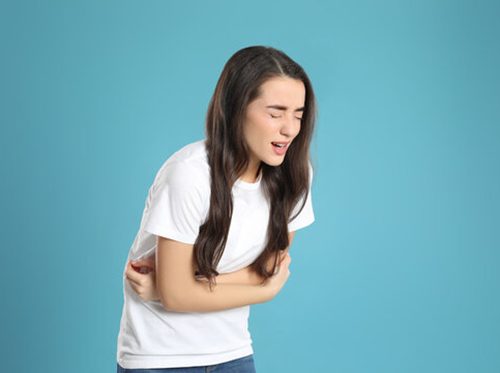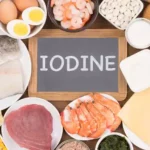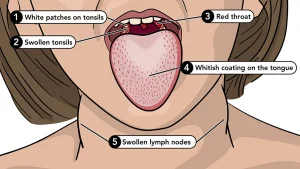
Understanding Bacterial Gastroenteritis + Insights into Viral Gastroenteritis
Gastroenteritis, a prevalent gastrointestinal disorder, can be attributed to both bacterial and viral infections. Understanding the specific bacteria responsible for this condition is crucial in determining the appropriate treatment. Let’s delve into the microbial world to unravel the culprits behind gastroenteritis.
Bacterial infections stand as a significant cause of gastroenteritis. Two key culprits in this category are Escherichia coli (E. coli) and Salmonella. These microorganisms gain entry into the digestive system through contaminated food or water, subsequently wreaking havoc on the gastrointestinal tract.
E. coli, a versatile bacterium, exists in various strains, some of which can lead to gastroenteritis. The strain responsible for this ailment, known as E. coli O157:H7, releases toxins that induce severe symptoms such as abdominal cramps, diarrhea (often bloody), and vomiting.

Salmonella is another prevalent bacterium known to cause gastroenteritis. It finds its way into the human body through the consumption of contaminated food, particularly raw or undercooked eggs and poultry. Once ingested, Salmonella rapidly multiplies in the intestines, giving rise to symptoms like diarrhea, fever, and abdominal cramps.
Apart from bacterial infections, certain viruses can also lead to gastroenteritis. Notable among these are noroviruses and rotaviruses. These viruses are highly contagious and can be transmitted through contaminated food, water, or direct contact with an infected individual.
In conclusion, gastroenteritis can be attributed to various bacteria and viruses. Understanding the specific pathogens involved is pivotal in administering targeted treatments. Bacterial infections, primarily caused by E. coli and Salmonella, along with viral infections from noroviruses and rotaviruses, stand as the key players in this gastrointestinal ailment. It is imperative to adopt preventive measures, such as practicing good hygiene and ensuring food safety, to mitigate the risk of gastroenteritis caused by these microbial invaders.
Dealing with Diarrhea in Gastroenteritis + Coping with Abdominal Pain in Gastroenteritis
Identifying the Initial Symptoms of Gastroenteritis:
Gastroenteritis, a common gastrointestinal affliction, manifests through a range of distressing symptoms. Recognizing the early signs is crucial for prompt intervention and relief. Here, we focus on the primary indicators of gastroenteritis, particularly emphasizing two key symptoms: diarrhea and abdominal pain.
The onset of gastroenteritis is often heralded by diarrhea. This is characterized by frequent, loose, and watery bowel movements. The digestive system, under the influence of the causative agents, undergoes rapid and uncontrolled contractions, leading to the expulsion of liquid stool. It is important to note that diarrhea may vary in intensity and duration, depending on the specific strain of bacteria or virus responsible for the infection.
Accompanying diarrhea, individuals with gastroenteritis commonly experience abdominal pain. This discomfort is typically localized in the lower abdomen and may range from mild cramping to intense, sharp pains. The abdominal pain arises due to the irritation and inflammation of the gastrointestinal lining caused by the invading pathogens. It is a significant symptom to be vigilant about, as it often precedes other manifestations of the condition.

In addition to diarrhea and abdominal pain, individuals with gastroenteritis may also experience bouts of nausea and vomiting. These symptoms arise from the body’s natural response to expel harmful pathogens. While not everyone with gastroenteritis will necessarily experience nausea and vomiting, they are common occurrences and should be taken into account when identifying the condition.
Beyond the primary symptoms of diarrhea and abdominal pain, gastroenteritis can present with a range of other indicators. These may include fever, muscle aches, and dehydration. It is important to note that the severity and combination of symptoms can vary from person to person, and may be influenced by factors such as age and overall health.
In conclusion, recognizing the initial signs of gastroenteritis is pivotal for timely intervention and management. Diarrhea and abdominal pain are the hallmark symptoms, providing a crucial diagnostic clue. Additionally, being mindful of accompanying symptoms like nausea, vomiting, fever, and muscle aches can further aid in identifying this gastrointestinal ailment. Seeking medical attention promptly can expedite recovery and prevent complications associated with gastroenteritis.
Deciphering Bacterial Gastroenteritis: Diagnostic Procedures
How is bacterial gastroenteritis diagnosed?
The accurate diagnosis of bacterial gastroenteritis is paramount in tailoring effective treatment strategies. A combination of medical tests and clinical examinations is employed to confirm the presence of bacterial pathogens and ascertain the specific strain responsible for the ailment.
A comprehensive clinical examination serves as the initial step in the diagnostic process. Skilled healthcare providers evaluate a range of factors, including medical history, symptoms, and physical observations. They pay particular attention to signs such as abdominal tenderness, presence of blood in stool (a potential indication of certain bacterial strains like E. coli O157:H7), and the overall demeanor of the patient. This examination provides crucial insights that guide the subsequent diagnostic steps.
The cornerstone of diagnosing bacterial gastroenteritis lies in the analysis of stool samples. A small sample of stool is collected and sent to a laboratory for thorough examination. In the lab, technicians employ specialized techniques to identify the presence of bacterial pathogens. This may involve culturing the stool sample to encourage the growth of bacteria, followed by microscopic examination and biochemical tests to pinpoint the exact strain responsible.

Blood tests play a supplementary role in diagnosing bacterial gastroenteritis. They are particularly useful in assessing the overall health of the patient and detecting elevated levels of inflammatory markers. An increased white blood cell count, for instance, can be indicative of an ongoing bacterial infection. Additionally, blood tests can help rule out other potential causes of gastrointestinal symptoms.
In certain cases, imaging studies may be employed to evaluate the condition of the gastrointestinal tract and rule out potential complications. Techniques such as ultrasound, CT scans, or endoscopy may be utilized. These studies provide a visual assessment of the intestines and can help identify any structural abnormalities or signs of severe inflammation.
In conclusion, the diagnosis of bacterial gastroenteritis relies on a combination of medical tests and clinical examination. The clinical assessment serves as the initial guide, providing valuable insights into the patient’s condition. Stool sample analysis remains pivotal, unmasking the specific bacterial strain responsible. Blood tests and imaging studies supplement the diagnostic process, aiding in comprehensive evaluation and ruling out potential complications. This multi-faceted approach ensures an accurate diagnosis, enabling healthcare providers to implement targeted treatment strategies for bacterial gastroenteritis.
Optimal Treatment Strategies for Gastroenteritis
What is the best treatment for gastroenteritis?
Gastroenteritis, while distressing, is a condition that can often be managed effectively with a combination of home remedies and, in some cases, medications. The best course of treatment depends on the severity of symptoms and the specific cause of the gastroenteritis, be it bacterial or viral in nature.
Maintaining proper hydration is paramount in the treatment of gastroenteritis. The loss of fluids through diarrhea and vomiting can lead to dehydration, which can exacerbate symptoms and lead to further complications. Replenishing fluids is crucial, and oral rehydration solutions, available at pharmacies, are highly effective. These solutions contain the essential electrolytes and sugars needed to restore the body’s balance.
The BRAT diet – consisting of Bananas, Rice, Applesauce, and Toast – is a well-regarded approach to easing digestive discomfort. These bland, easily digestible foods provide essential nutrients without aggravating the gastrointestinal tract. They also help in replenishing lost energy.
Probiotics, which are beneficial bacteria, can aid in restoring the balance of the gut microbiota disrupted by gastroenteritis. They are available in supplement form or in fermented foods like yogurt. Probiotics help alleviate symptoms and speed up recovery.
In some cases, medications may be prescribed to address specific symptoms. Anti-diarrheal medications can help control excessive bowel movements, providing relief from diarrhea. However, these should be used under the guidance of a healthcare provider, as they may not be suitable for all cases of gastroenteritis.
Rest is often underestimated but plays a crucial role in the recovery process. It allows the body’s immune system to focus on combating the infection and helps replenish energy levels.
While home remedies can be highly effective in mild cases of gastroenteritis, it is imperative to seek medical attention if symptoms worsen or persist for an extended period. In severe cases, especially in vulnerable populations like young children, the elderly, or individuals with compromised immune systems, hospitalization may be necessary to ensure proper hydration and monitoring.
In conclusion, the best treatment for gastroenteritis encompasses a combination of home remedies and, in certain cases, medications. Prioritizing hydration, following the BRAT diet, incorporating probiotics, and considering medications for symptom relief are key strategies. Rest and seeking medical attention when necessary are equally vital components in ensuring a swift and thorough recovery from gastroenteritis.
Shielding Against Digestive Infections: Home Prevention Strategies
How can I prevent gastroenteritis at home?
Preserving one’s health and well-being starts with a strong defense against gastrointestinal infections. Employing simple yet effective measures within the home environment can significantly reduce the risk of falling prey to such illnesses.
Maintaining impeccable hygiene is the foremost defense against digestive infections. Regular handwashing with soap and water, especially before handling or consuming food, is imperative. It is equally crucial after using the restroom and handling pets. By doing so, you limit the potential transfer of harmful pathogens to your digestive system.
Vigilance in food handling and preparation is paramount. Ensure that all perishable items are stored at appropriate temperatures, and that they are cooked to safe internal temperatures to eliminate potential pathogens. Avoid cross-contamination by using separate cutting boards for meats and vegetables, and be diligent about cleaning surfaces and utensils after each use.
The quality of water you consume plays a pivotal role in preventing infections. If there are doubts about the safety of your water source, consider using a water purifier or opting for bottled water. This precaution is particularly important when traveling to regions where water quality may be uncertain.
Vaccination is a powerful tool in preventing certain gastrointestinal infections. For instance, vaccines against rotavirus are highly effective in reducing the risk of severe diarrheal illness, especially in infants and young children. Consult with your healthcare provider to ensure that you and your family are up-to-date with relevant vaccinations.
Regular cleaning and disinfecting of your living space is crucial in preventing the proliferation of harmful bacteria and viruses. Pay special attention to high-touch surfaces like doorknobs, light switches, and countertops. Additionally, ensuring proper sanitation of restroom facilities is vital in preventing the spread of infections.
While pets are beloved members of the family, it’s important to exercise caution when handling them to prevent the transmission of infections. Wash your hands thoroughly after interacting with pets, especially before handling food or touching your face.
In conclusion, safeguarding against digestive infections can be achieved through a combination of conscientious hygiene practices, meticulous food handling, and vaccination. Maintaining a clean living environment and being cautious with pets further fortifies your defenses. By incorporating these practices into your daily routine, you significantly reduce the risk of falling prey to gastrointestinal infections in the comfort of your own home.
Frequent Complications Arising from Viral Digestive Infections
What is the common complication of viral gastroenteritis?
When confronted with viral digestive infections, it’s essential to be aware of potential complications that can arise. Among these, dehydration and electrolyte imbalance are the most prevalent and demand prompt attention.
Dehydration stands as one of the most common complications associated with viral digestive infections. The continuous expulsion of fluids through diarrhea and vomiting leads to a significant loss of water and electrolytes from the body. This imbalance disrupts essential bodily functions and can result in symptoms such as dizziness, rapid heartbeat, and lethargy.
It is particularly crucial to monitor vulnerable populations, such as young children and the elderly, as they are more susceptible to dehydration. Replenishing lost fluids through oral rehydration solutions is paramount. In severe cases, or when oral rehydration is not feasible, intravenous fluids administered by a healthcare professional may be necessary to restore hydration levels.
Electrolytes, including sodium, potassium, and chloride, play a critical role in maintaining cellular function and regulating bodily processes. Viral infections can disrupt the balance of these electrolytes, leading to an electrolyte imbalance. This can result in symptoms ranging from muscle weakness and irregular heartbeats to neurological disturbances.
Re-establishing the appropriate balance of electrolytes is imperative for the body to function optimally. In cases of severe electrolyte imbalance, medical intervention may be required, often involving the administration of specific electrolyte solutions.
While dehydration and electrolyte imbalance are the primary complications, it’s important to note that in more severe cases or in individuals with weakened immune systems, viral infections can lead to further complications. These may include bacterial superinfections, organ damage, or systemic complications. Prompt medical attention is vital in such situations.
In conclusion, vigilance in recognizing and addressing complications arising from viral digestive infections is essential. Dehydration and electrolyte imbalance are the most common concerns, particularly in cases of prolonged or severe symptoms. Prompt rehydration and, if necessary, electrolyte replacement under the guidance of a healthcare provider are crucial in mitigating these complications. Additionally, in more severe cases, or for individuals with underlying health conditions, seeking prompt medical attention is imperative to prevent further complications.
Expediting Recovery from Digestive Infection: Effective Strategies
How can I recover from gastroenteritis fast?
Recovering swiftly from a digestive infection involves a combination of careful dietary choices, adequate rest, and gradual reintegration of physical activity. Here are key steps to expedite your recovery.
Opting for bland, easily digestible foods is paramount in promoting a speedy recovery. The BRAT diet – consisting of Bananas, Rice, Applesauce, and Toast – serves as an excellent starting point. These foods are gentle on the stomach, provide essential nutrients, and help in easing digestive discomfort.
Additionally, consider incorporating clear broths, boiled potatoes, and cooked carrots into your meals. These options are not only gentle on the digestive system but also aid in replenishing lost nutrients and energy.
Rehydration is crucial in replenishing the fluids lost through diarrhea and vomiting. Alongside water, oral rehydration solutions, available at pharmacies, are highly effective in restoring the body’s electrolyte balance. Sipping on these solutions throughout the day helps prevent dehydration and promotes a quicker recovery.
While rest is crucial, gentle, low-impact exercises can aid in expediting recovery. Short walks or light stretching can improve blood circulation and stimulate the digestive system. However, it is essential to listen to your body and refrain from overexertion. If you feel fatigued or weak, it’s best to prioritize rest.
Probiotics, available in supplement form or in fermented foods like yogurt, aid in restoring the balance of beneficial bacteria in the digestive system. They can alleviate symptoms and hasten the healing process. Consider incorporating probiotics into your diet after consulting with a healthcare provider.
Steering clear of foods and substances that can irritate the digestive system is crucial for a speedy recovery. Spicy, greasy, and heavily processed foods, as well as caffeine and alcohol, should be avoided until your digestive system has fully recuperated.
It’s important to monitor your progress closely. If symptoms persist or worsen, or if you experience signs of severe dehydration, it’s crucial to seek immediate medical attention. In some cases, especially for vulnerable populations, hospitalization may be necessary to ensure proper hydration and monitoring.
In conclusion, expediting recovery from a digestive infection involves a combination of dietary adjustments, hydration, gentle exercise, and probiotic incorporation. Prioritizing rest and avoiding potential irritants to the digestive system further supports a swift recovery. Remember to monitor your progress and seek medical guidance if needed, especially in cases of prolonged or severe symptoms.
Conclusion:
In conclusion, digestive infections can present with a range of symptoms, from mild discomfort to more severe complications. Recognizing the early signs and seeking prompt medical attention when necessary are crucial steps in managing and recovering from such infections. Additionally, adopting preventive measures, such as impeccable hygiene practices, proper food handling, and vaccination, can significantly reduce the risk of falling prey to these ailments.
Hydration emerges as a cornerstone in the treatment of digestive infections, particularly in cases where diarrhea and vomiting lead to fluid loss. Replenishing lost fluids, along with adhering to a digestive-friendly diet, plays a pivotal role in expediting recovery. Probiotics, with their beneficial impact on gut health, are another valuable tool in the recovery process.
Furthermore, exercise caution when handling pets and be diligent in maintaining a clean living environment to prevent the spread of infections. Monitoring progress and seeking medical guidance if symptoms persist or worsen is essential, especially for vulnerable populations.
Overall, a holistic approach encompassing proper hygiene, dietary adjustments, hydration, and, when necessary, medical intervention, ensures a thorough and swift recovery from digestive infections. By adopting these measures, individuals can not only alleviate discomfort but also safeguard their overall well-being.
More Related Links
FAQs:
Q: What Are Common Symptoms of Digestive Infections?
Answer: Individuals with digestive infections often experience symptoms such as diarrhea, abdominal pain, nausea, vomiting, and in some cases, fever. Recognizing these signs is crucial for timely intervention.
Q: How Is Digestive Infection Transmitted?
Answer: Digestive infections can be transmitted through various routes, including ingestion of contaminated food or water, direct contact with an infected person, or contact with surfaces contaminated by the causative pathogens.
Q: What Are Effective Home Remedies for Alleviating Symptoms?
Answer: Home remedies like following a BRAT diet (Bananas, Rice, Applesauce, and Toast), staying well-hydrated with oral rehydration solutions, and incorporating probiotics can help in alleviating symptoms and promoting a faster recovery.
Q: When Should I Seek Medical Attention for Digestive Infections?
Answer: It is advisable to seek medical attention if symptoms worsen or persist for an extended period, or if there are signs of severe dehydration such as rapid heart rate, dizziness, or reduced urine output. Vulnerable populations, like young children and the elderly, should be monitored closely.
Q: How Can Digestive Infections Be Prevented?
Answer: Preventive measures include thorough handwashing, safe food handling and preparation, vaccination where applicable, and maintaining a clean living environment. Additionally, avoiding contact with potentially contaminated sources and practicing good hygiene habits can significantly reduce the risk of acquiring a digestive infection.















